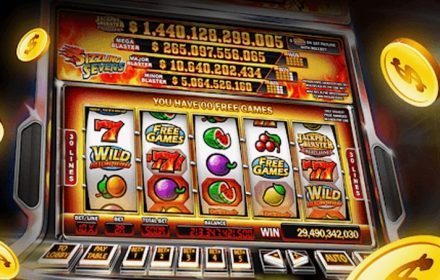The biggest wins in gambling break conventional notions of probability. Million-dollar sums change cities, companies, and entire industries. One victory can revive fading markets, create new brands, and prompt reforms in betting regulations. Each story turns dry statistics into an emotional record quoted by economists, marketers, and investors.
The Biggest Wins in Gambling
The biggest wins in gambling create unexpected trends. In 2018, the Megabucks slot machine in Las Vegas awarded the largest jackpot in slot machine history to an anonymous player from the USA — $39.7 million. The casino had to pay out the sum without delay, maintaining trust in the brand. Analysts calculated that this payout exceeded the network’s advertising budget for two years. Las Vegas responded by raising limits and updating slot machines to attract new players and maintain the flow of bets.
The biggest wins in lotteries are no less impressive. In January 2016, Powerball in the USA set a billion-dollar record — $1.586 billion. The sum was split between three tickets. One victory changed the demographics of entire neighborhoods: part of the sum was invested in real estate, school support funds, and startups. Economists noted an increase in tax revenues and a shift in retail sales statistics.
Legendary Turns in Casino History
The biggest wins in gambling demonstrate that risk and analytics sometimes intersect. In Monte Carlo, a roulette player won $3.5 million using a betting system with precise deviation calculations. In Atlantic City, baccarat brought professional player Chong $9.6 million: he analyzed dealer patterns, adjusted strategies, and increased bets only after identifying weaknesses.
A win in a Macau casino in 2022 amounted to $12.9 million thanks to a combination of dice bets and the ability to recognize rare series of outcomes. This record prompted operators to update software algorithms for slot machines and roulettes.
Mistakes That Changed the Industry Balance
Record wins in gambling are not always the result of strategy. In 2011, a software glitch in an online casino allowed a group of players to claim $1.7 million. The company acknowledged the error but decided not to retract the payment to preserve its reputation. Compensation to affected customers cost an additional $400,000. The incident became a learning example for developers: the industry invested millions in code audits and stress tests.
In another incident, fraudsters from Europe attempted to use magnetic rings to manipulate dice, but high-resolution cameras exposed the scheme. Authorities confiscated $250,000, and casinos strengthened the protection of roulettes and slot machines.
How to Bet $50 and Win Millions?
Record jackpots and player successes often start with minimal sums. A student in Nevada placed $50 on the Wheel of Fortune slot machine and hit a $14.3 million jackpot. Analysis showed that the likelihood of such an outcome did not exceed 1 in 16 million. In 2003, an office clerk bought a Mega Millions lottery ticket for $1 and won a prize of $390 million. His decision inspired a 30% increase in ticket sales within a month.
Examples for a better understanding of the impact of such events on the market:
- In 2020, the biggest casino wins increased industry media coverage by 45%.
- The Powerball lottery raised tax revenues for individual US states by $120 million.
- A software error and compensation in an online platform pushed operators to implement multi-level data protection.
- The baccarat record in Atlantic City changed the approach to dealer training and bet monitoring.
- An anonymous winner from Las Vegas who hit the jackpot became a symbol of payout stability and brand trust.
These episodes intensified competition among platforms and compelled operators to invest in innovative betting control mechanisms. Strong media resonance after high-profile wins strengthened audience trust in the industry and stimulated casino attendance growth.
Millions and Billions as an Economic Engine
The biggest wins in gambling impact not only casinos or lotteries. Economists note a ripple effect: increased interest in bets stimulates the development of tourism, hotel business, and advertising. When Powerball announced a billion-dollar prize, sales of related products in the USA increased by 12%. Companies use stories of record wins as a marketing tool. Brands emphasize emotions and facts because every victory is a story of possibilities.
A $1.58 billion jackpot sparked an investment surge in local real estate markets. In Las Vegas, after record payouts, the number of Megabucks slot machines increased by 18% to meet demand. Roulette manufacturers introduced new pressure sensors to protect against fraudsters.
Impact on the Gambling and Technology Market
Record wins in gambling stimulate innovation. Casinos implement biometric control systems to prevent fraud, automatic bet tracking systems, and algorithms for predicting player behavior. Slot developers invest in updating software to eliminate malfunctions.
The $39.7 million jackpot on Megabucks led to the development of independent auditing companies that now audit machines every six months. The roulette in Macau became a testing ground for pressure sensors that detect dice movement.
Conclusion
The biggest wins in gambling set new standards for risk management, marketing, and technology. Each story shows that one bet or one ticket can change not only the player’s balance but also an entire industry. A record is not just a number but a signal to the market to act faster, safer, and smarter.
 en
en  de
de  ar
ar  es
es  hi
hi  nl
nl  fr
fr  it
it  pt
pt  el
el 









